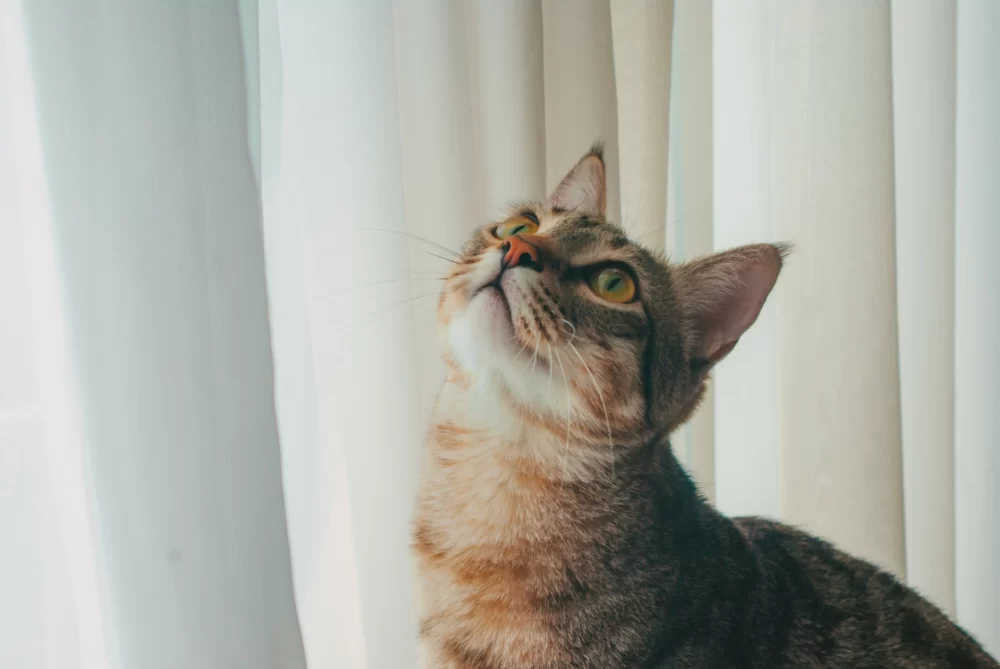Information
5 Tips For Controlling Cat Litter Odor

Although they are excellent companions, owners of cats sometimes worry about the smell of their litter box. Cat litter has a stench that may rapidly fill your house, so it’s critical to discover efficient ways to keep it under control. Fortunately, you can keep your home clean and comfortable for your cat and yourself if you use the appropriate methods.
Table of Contents
1. Choose the Right Litter:
The first step in reducing litter box odor is choosing the right cat litter. There are many kinds of cat litter on the market, including natural, silica gel, clumping, and non-clumping varieties. When clumping litter comes into touch with moisture, it solidifies into clumps that facilitate waste removal and odor control. Odor is efficiently trapped by the clumps, keeping it from spreading throughout the litter box. Even while non-clumping litter is less effective at controlling odors, you may still use it if your cat is a fan. Cat owners often use silica gel litter because it has absorbent granules that both absorb moisture and neutralize smells. An eco-friendly large litter box with a high level of odor control is created from materials like maize, wheat, or pine. In addition, depending on your cat’s preferences, think about using scented or unscented litter.
2. Regular Scooping and Cleaning:
Keeping the litter box clean is essential for odor management. Due to their careful nature, cats may not use a filthy box, which might leave your house stinking. Develop the routine of scooping the litter box once or twice a day and discarding solid waste and clumping right away. This work is made easier with clumping litter, which makes it easier to remove filthy areas. Frequent scooping keeps your cat’s habitat sanitary and helps avoid odor accumulation. Regularly clean the litter box completely in addition to scooping. Before adding new litter to the box, make sure it is empty, give it a thorough cleaning with warm water and mild soap, and let it dry completely.
3. Invest in High-Quality Odor Control Products:
There are a wide variety of odor control solutions on the market, from odor-absorbing gels and sprays to litter box deodorizers. These goods are made expressly to mask smells and improve the surrounding air quality around the litter box. Odor-absorbing gels and sprays may be put close to the litter box to get rid of offensive aromas, or litter box deodorizers can be sprayed directly on the litter to absorb odors. Products based on activated charcoal are very good at absorbing smells because of their porous nature, which captures and neutralizes odor molecules. To improve odor management, think about purchasing activated charcoal-containing litter or setting up active charcoal pouches next to the litter box.
4. Adequate Ventilation in the Litter Box Area:
To keep the litter box area odor-free, proper ventilation is necessary. Odors may concentrate and become more pronounced if the litter box is kept in a small area with little ventilation. Make sure there is enough ventilation in the litter box area by opening windows, turning on fans, or adding air purifiers. Odors are less likely to cling to surfaces in a room when there is enough ventilation. Additionally, because they provide greater ventilation, think about utilizing litter boxes that are open or partially covered. Odor concentration may rise in covered litter boxes as a result of scents being trapped inside. If your cat likes covered boxes, look for types that include filters or ventilation holes to let air circulate while successfully keeping smells contained.
5. Maintain Your Cat’s Health:
Urine and feces from cats may have different smells depending on their diet and general health. The smell of your cat’s excrement may suddenly alter, which might be a sign of an underlying medical condition such as gastrointestinal or urinary tract infections. Frequent veterinarian examinations are necessary to track your cat’s health and quickly treat any issues. In addition, feed your cat a nutritious, well-balanced food that satisfies their demands. A balanced diet may help reduce foul-smelling waste and encourage healthy digestion. Dehydration may result in concentrated pee and harsher scents, so make sure your cat always has access to fresh water.
Conclusion
Cat litter odor control involves making deliberate decisions along with regular upkeep. It is possible to effectively eliminate unpleasant odors and create a fresh and comfortable environment for you and your feline companion by selecting the proper litter, cleaning and scooping the litter box on a regular basis, investing in high-quality odor control products, making sure there is enough ventilation, and taking care of your cat’s health. Remember that the best ways to reduce litter box stinks in your house depend on your knowledge of your cat’s preferences and routines. You can appreciate your cat’s wonderful company and have a clean, odor-free living area with these professional-approved methods.
To know more about keep reading Lemony Blog

-

 Business3 years ago
Business3 years agoHow to Do Long-Distance Moves with Children
-

 Travel2 years ago
Travel2 years agoQuick Guide: Moving To Santa Rosa?
-

 Real Estate3 years ago
Real Estate3 years agoWhy Dubai Festival City is a Great Neighbourhood for Young Learners
-

 Business3 years ago
Business3 years agoIs Guest Posting a Good Inbound Marketing Strategy?
-

 Business1 year ago
Business1 year agoThe Ultimate Guide To Thriving In Your Printing Franchise
-

 Business1 year ago
Business1 year agoExploring The Benefits And Challenges Of Restaurant Franchising
-

 Tech3 years ago
Tech3 years agoCyber Table That Will Change Your Life
-

 Lifestyle1 year ago
Lifestyle1 year agoDallas’ Hidden Gems: 6 Must-Try Restaurants Off The Beaten Path!









Recent Comments